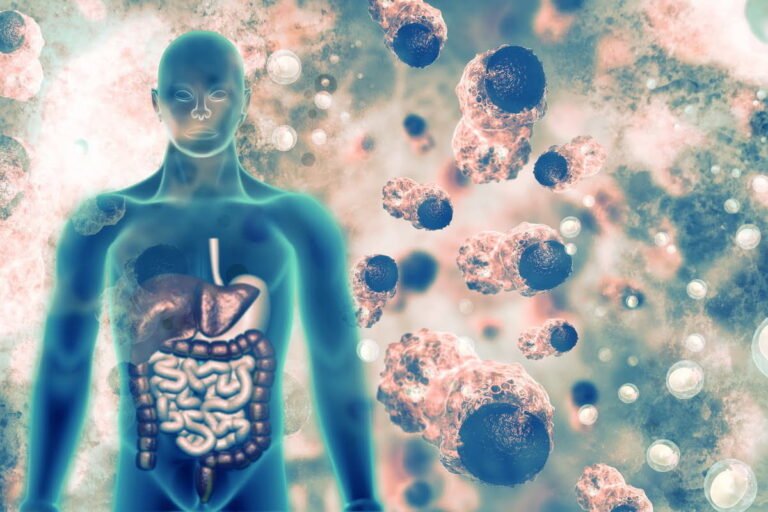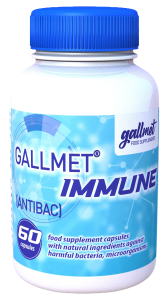Supporting liver and bile functions and healthy digestion, contributes to the microbiological balance of the intestine


White horehound (Marrubium vulgare)
supports the intestinal tract, contributes to healthy digestion and to proper liver and bile function
- Its appetite enhancing and digestion stimulatingD1 effect is related to its bitter substance content.
- Bitter taste improves appetite reflexively and supports digestion by increasing the secretion of digestive fluids.

Turmeric and black pepper (Curcuma longa and Piper nigrum)
supports the immune system, lung and respiratory tract health. It provides protection against allergies and has a significant antioxidant function
- Turmeric also has an effect of increasing bile production and contracting the gallbladder. The antispasmodic effect of its extract contributes to its efficacy in alleviating digestive disordersE15.
- Turmeric extract decreases triglyceride levels, which can be partly explained by increased bile productionE9.
- The majority of clinical data on turmeric come from studies with turmeric from India. The biliary (bile flow increasing) and digestion improving (reducing dyspeptic symptoms) effects of turmeric have been proven in human studiesE18, but no comprehensive clinical studies have been done to date. The cholesterol reducing effect of turmeric has been proven in several clinical trials and in their meta analysisE10.
- Centuries of oriental folk experience and informative scientific studies support the anti-inflammatory effect of the drug and clinical evidence to the same effect is also availableE10. The anti inflammatory effect of curcuminoids has been confirmed by the positive results of several human trials, their consumption alleviated joint painsE12. Several clinical trials have indicated that curcumin – presumably due to its anti inflammatory function – relieves the symptoms of ulcerative colitisE11.

King Of Bitters (Andrographis paniculata)
supports the body’s natural defences, especially in the upper respiratory tract
- It has a hepatoprotective and antioxidant function internallyC16.

Bile acids
reduce digestive and biliary complaints caused by bile deficiency thus significantly supporting the weakened immune system. They also neutralize endotoxins released from the necrosed cell walls of Gram negative bacteria that are the cause of numerous diseases. Bile acids inhibit the spread of several strains of viruses (influenza, corona, hepatitis, herpes/Epstein Barr, HIV, EBOLA) by preventing virions from biding to the membrane of host cells, thus impeding the production of viruses, but they also break down the virion host cell bond in viruses already produced.
THE ROLE OF BILE ACIDS IN DIGESTION AND THE LACK OF THEM AFTER GALL BLADDER SURGERY (bile defficiency)
- If bile secretion, bile production or the enterohepatic circulation are insufficient (he population has a min. 25% have inadequate digestion and bile function, ie they are bile deficient and thus may have many of the resulting diseases and health problems), then the breakdown and the digestion of fats will not be correct. This can be favourably influenced by the administration of bile acids at mealtimes.
- After cholecystectomy, storage function of the gall bladder is lost. The bile continuously trickles, so, if there is a higher demand for bile (when having a meal containing a larger amount of fat), there is not any bile to release because of the lack of the bladder. So, the fats are not completely digested (fat metabolism disorder), and when it is getting into the colon, the intestinal flora eliminates the indigestible parts along with gas formation, causing abdominal bloating, possibly diarrhoea.
- Occasionally occurring meal related bile deficiency, caused by gall bladder surgery, can favourably influenced by administration of bile acids.
References:
C16 – Review on liver inflammation and antiinflammatory activity of Andrographis paniculata for hepatoprotection
Review on liver inflammation and antiinflammatory activity of Andrographis paniculata for hepatoprotection Download – PDF Abstract Till to date, the advancement of medical science and technology is still unable to provide inclusive treatment to liver inflammation caused by neither microbial
D1 – An Insight into a Blockbuster Phytomedicine; Marrubium vulgare L. Herb. More of a Myth than a Reality?
An Insight into a Blockbuster Phytomedicine; Marrubium vulgare L. Herb. More of a Myth than a Reality? Download – PDF ABSTRACT Aerial parts and the root of Marrubium vulgare L. (white horehound) have been traditionally used in Europe and in
E10 – Efficacy and safety of turmeric and curcumin in lowering blood lipid levels in patients with cardiovascular risk factors: a meta-analysis of randomized controlled trials
Efficacy and safety of turmeric and curcumin in lowering blood lipid levels in patients with cardiovascular risk factors: a meta-analysis of randomized controlled trials Download – PDF Abstract Background: Dyslipidemia is an important and common cardiovascular risk factor in the
E11 – Efficacy of Curcumin as Adjuvant Therapy to Induce or Maintain Remission in Ulcerative Colitis Patients: an Evidence-based Clinical Review
Efficacy of Curcumin as Adjuvant Therapy to Induce or Maintain Remission in Ulcerative Colitis Patients: an Evidence-based Clinical Review Download – PDF Abstract Background: Treatment guidelines for ulcerative colitis (UC) not yet established. Currently, mesalazine, corticosteroids, and immunomodulators are treatment
E12 – Efficacy of Curcumin as Adjuvant Therapy to Induce or Maintain Remission in Ulcerative Colitis Patients: an Evidence-based Clinical Review
Efficacy of Turmeric Extracts and Curcumin for Alleviating the Symptoms of Joint Arthritis: A Systematic Review and Meta-Analysis of Randomized Clinical Trials Download – PDF Abstract Although turmeric and its curcumin-enriched extracts have been used for treating arthritis, no systematic
E15 – Vasodilating, spasmolytic, inotropic and chronotropic activities of curcuminoids from Curcuma longa in isolated organ preparations of guinea pigs
Vasodilating, spasmolytic, inotropic and chronotropic activities of curcuminoids from Curcuma longa in isolated organ preparations of guinea pigs Download – PDF Abstract Turmeric is a yellowish orange spice, widely used in Asian cuisine and obtained from the rhizome of Curcuma
E18 – Postprandial Responses of Serum Bile Acids in Healthy Humans after Ingestion of Turmeric before Medium/High-Fat Breakfasts
Postprandial Responses of Serum Bile Acids in Healthy Humans after Ingestion of Turmeric before Medium/High-Fat Breakfasts Download – PDF Abstract Bile acids (BAs) are known to regulate a number of metabolic activities in the body. However, very little is known
E9 – Effects of Turmeric (Curcuma longa) Extract in streptozocin-induced diabetic model
Curcumin and turmeric extracts significantly reduced blood glucose and creatinine levels, but not urea, and caused an increase in uric acid. Download – PDF Abstract Herbal remedies have been used for centuries to ameliorate complications of diabetes mellitus (DM). The



